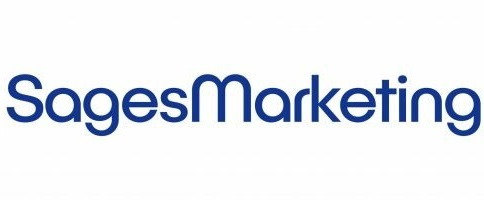9 Steps to Securing Your Site
When you build a website, you want the functionality to be on par. However, functionality isn’t the only aspect of a site you need to worry about. You also need to worry about content, traffic, SEO campaigns, and, most importantly, security.
A website brings brand awareness, building a reputation for how your company acts, functions, and presents itself. When you do not invest in securing your website, it will speak volumes to those who would be your customers otherwise.
Keep Reading to Find Out How to Make A Secure Website!
We want to jump right into the meat of this article. So, without further ado, here are 9 steps to creating a secure website.
Plugins and Add-Ons
In order to enhance the visitor experience, add-ons and plugins were designed and released. However, using too many can lead to hazards on the website. They will impede the response time while slowing the website down significantly. Regular inspections of the plugins and add-ons will help to reduce defective extras. Always study the reputation, regardless of the source of these additions. The details and revision history of the add-ons and plugins will tell you all you need to know about them.
When it comes to upkeep and maintenance, it is no different than a CMS. Meaning, the website accessories you use need to be tended to on a regular basis. Letting them become outdated will lessen your defense against bugs, making your business have a risk to its security.
There are even some add-ons that specialize in security-specific features, limiting the existence of viruses. Wordfence Security and Sucuri Security are plugins that will help reduce the infiltration rate of your website while assisting you on your road to building a more secure site for your business and audience.

Picking the Correct CMS
CMS stands for the content management system. It is a tool that is used to construct your site while managing the content scheduled to be posted. There are many beneficial CMS that are advancing the protection that they offer. They do this by overseeing program coding while sustaining a quick process.
A reliable CMS will defend your website against any unexpected vulnerabilities. Doing this minimizes security gaps. These systems bolster their software by cycling through different updates. With the newest versions, your site becomes able to withstand hacking methods and weaknesses.
There are several CMS platforms, the most popular being WordPress and Joomla. These platforms are generally user-friendly while promoting safety. This makes it a convenient matter to install modifications. It will definitely simplify things for your development and marketing teams.

Picking a Reliable Host
Believe it or not, security doesn’t just start with the website creator. In fact, it begins with the website Host. When you choose a host for your site, which there are several choices out there, you are actually choosing their level of security that they provide. Many web hosts offer features like WAF (web application firewall) and DDoS (denial-of-service) protection.
When you choose to go with web hosts that are established, GoDaddy, and Bluehost as examples, you are allowed to set the level of safety they provide.

When looking at the components needed for site security, WAF is pretty crucial. It will avert any breaching attempts on your website. SQL (Structured Query Language) injection, as well as cross-site scripting, are the methods used by malicious individuals trying to acquire your information. WAF is your lifeline in this situation; it will monitor these very serious occurrences.
Out-of-commission/Data Loss websites will make traffic dwindle down, turning away anyone interested in your services/products. However, that can all be prevented by pairing up with a hosting provider that is reliable and effective. Especially if you are an e-commerce store, or your site features accounts for users, you need to make sure that your site is secure.
Reliable Passwords
Poor quality passwords are a huge contributor to online data breaches. You will have a wide range of employees collaborating on your business’ website. Because of this, you should definitely have a password practices set.
A number of diverse passwords should be utilized on each platform, suggested by cybersecurity professionals. Make sure to have the passwords use a variety of numbers, letters, and symbols. This will help set your website passwords apart.
2FA (Two-factor Authentication) is a screening technique to help fend off hackers. An additional set code is a great way to identify different approved users. It is a feature that is included in many different CMS platforms as one of their security precautions.
Access Levels Enabled
While the expertise of your personnel is a huge contribution to your website, too much access leaves you open to security risks. It is better to have distinctive tiers of access that you are able to supervise over. This will be a safeguard to your website, restricting unwanted permissions from the aspects of your site you feel should be left under your control only. This can prevent crashes and errors, as well.
Having a login for each employee will allow you to manage the different tweaks and content that is published. Doing this will help ward off any mistakes. The best way to have it tiered is giving higher-ups and owners maximum privileges to manage and oversee the website, while employees can only contribute to the website through their own expertise.
Automatic Backup
Websites take time, effort, creativity, strategies, and hard work. However, your servers can go down. When this happens, all your hard work is lost. A common solution to this is a backup system. These systems will basically bring your site back to life, restoring the core website materials. This will help speed up the relaunching process.
A backup system helps save you from having to do all your hard work over again. While finding the causing issue of the server going down is important, it is more so important to protect your business by securing your company website. Also, you need to store your data in a location that is safe, trustworthy, and accessible. You can have an automated backup of your data on a routine basis; this will give you the best chance to prevent a devastating situation.
Testing
Make sure that you are systematically testing your website’s different portions to locate any areas that may act as a security breach for your site. Doing so regularly will add added protection as you structure your website and its security measures. While you are able to foresee issues and address them prior to testing, you can still miss any instability that maybe there.
SSL Certificate
SSL certificates work by securing transactions, guarding the purchases made on your website. This is crucial to customer security, your security, and the reputation of the business.
How does SSL (Secure socket layer) protect online purchases? Simple. When a customer or visitor frequents your site, most of the time, you are requesting information from them. SSL will verify the interchange. SSL is normally provided by the host. It encrypts the data of debit/credit cards and other sensitive information. Unencrypted information is a prime target for cybercriminals.
Update Subscriptions for Security
With security applications from CMS or hosts, you have to usually renew them through subscriptions. The paid subscriptions need to be quickly refinanced. Otherwise, there isn’t anyone to vet your platform. Another side effect of not refinancing your security-specific applications is the open access to malware that will take advantage of a lack of security.
Make sure you keep track of the different services, stay aware of subscriptions that are close to ending. It is best to have alerts and/or auto-renewal settings to make sure all breaks in the subscription are eliminated.
Following these 9 steps to adding security to your website will ensure the safety of the customer, company, and reputation that you work so hard to acquire. Making sure that the sensitive information that is shared is protected, encrypted, and confidential should be one of your primary concerns when you are designing, managing, and maintaining a website.







